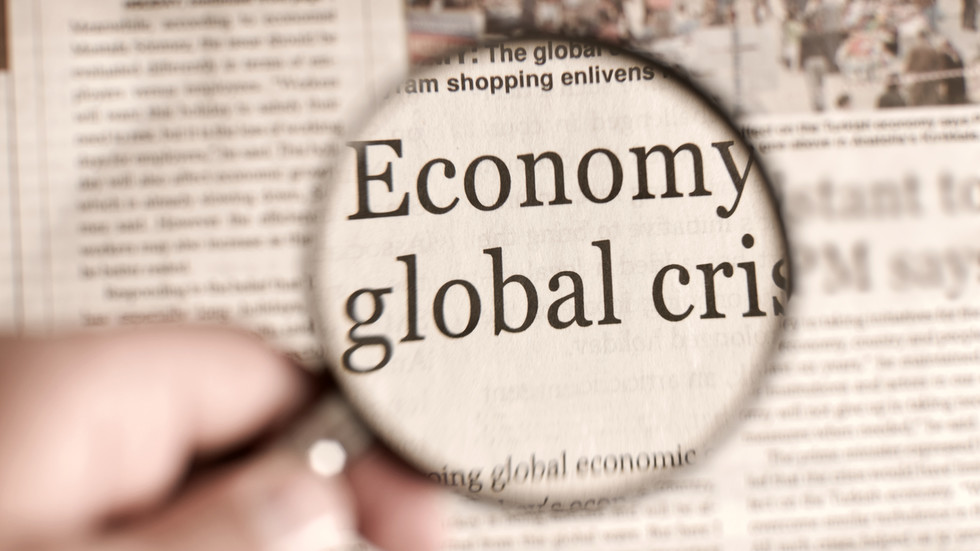The global economy is headed for a downturn as inflation remains a major threat, a report says
The globe will slide into a recession next year as a number of economies will contract due to surging borrowing costs introduced to combat inflation, the UK-based Centre for Economics and Business Research (CEBR) has predicted in its latest report.
The world economy surpassed $100 trillion for the first time ever in 2022 but will stall in 2023 as “the battle against inflation is not won yet,” while regulators will keep raising interest rates, the consultancy said in its annual World Economic League Table.
“We expect central bankers to stick to their guns in 2023 despite the economic costs. The cost of bringing inflation down to more comfortable levels is a poorer growth outlook for a number of years to come,” the director and head of forecasting at CEBR, Kay Daniel Neufeld, wrote.
The report's conclusions are more pessimistic than the most recent forecast by the International Monetary Fund (IMF), which predicted in October that more than a third of the world’s economy will contract in 2023.
Russian firms report improving business climateREAD MORE: Russian firms report improving business climate
The CEBR, which bases its growth, inflation, and exchange-rate forecasts on data from the IMF and an in-house model, said that “inflation has become the main economic story” of the past year. The analysts warned that “even though we are starting to see price growth decelerating in some economies, volatility in global energy markets and entrenched core inflation suggest that it will remain front and center in 2023 as well.”
The consultancy also predicted that China would outperform the US and become the world’s largest economy by 2036 – six years later than previously expected, due to the country’s zero-Covid policy and escalating trade tensions with the West, which have slowed its growth.
According to the study, India’s economy will become the third largest overall by 2032 and will reach the $10 trillion mark by 2035.
For more stories on economy & finance visit RT's business section
https://www.rt.com/business/569106-global-economy-recession-forecast/
Ghana is interested in purchasing a floating nuclear power plant from Russia, Ghanaian Ambassador to Russian Koma Steem Jehu-Appiah told Sputnik.
"I know that our minister of energy was here last year and signed a corresponding agreement. I think this is innovative, and in a conversation with the minister of energy, he said that the country is interested.
So, Ghana could purchase such a nuclear power plant," the diplomat said when asked about the possibility of Ghana purchasing a floating nuclear power plant.
Russia and Ghana began cooperation in the field of nuclear energy after signing an intergovernmental agreement in 2015.
The agreement outlined plans for joint work in the areas of training specialists, building nuclear power plants and related infrastructure, and providing maintenance services. In October 2023, representatives of Rosatom met with the Ghanaian Ministry of Energy in Cape Town. At the meeting, Russia proposed using floating nuclear power plants to supply power to ...














